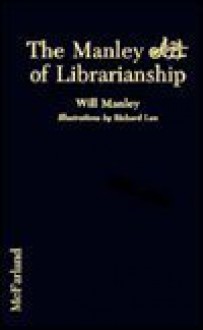I usually visit the public library on Saturdays. I turn in anything I have checked out and finished, and I check out new things. I don't always read everything in the time allotted, so I often renew books. In my local public library, new items get a two-week (14 days) check out period. Older and regular items get four weeks. I tend to prefer items on the four weeks cycle to give myself more time to read them, but one in a while a 14 days item catches my eye, and I decide to read it right away rather than wait til it falls out of the "new" cycle.
For fun this year, I am going to try and put up my public library finds up. I may not do it every single time, but when I can, we'll have something here. It is easy to do here since once I enter the books into the shelf, linking the book covers to a post is easy. There is no need to worry about taking photos or such as I would have to do on my main blog. Anyhow, anyone else want to join on the fun, please feel free to do so and share. I am always interested in what other people read.
Graphic novels are a big thing for me to read, so I got three this week. The Hickman and the Lob books are new to the library, so I will be getting to those sooner. The Wolverine volume I can wait a bit.
My local public library keeps the staging area (where they put books that have been recently returned and waiting to be reshelved) near where the new books are kept. I often do check for books to read in that area, and that is where I found the Bad Girl Art book. I love finding books by serendipity.
Finally, the Jenkins book and the readers' advisory books were in the 000s Dewey call number area. That is where libraries keep books on librarianship as well as books about books and reading. This area also covers generalities, which is why you find some trivia type of books here as well. The trivia one I checked out because I enjoy that sort of thing. The RA one I checked out to help me keep up with my profession. Yes, I am a librarian. I work for the local college's library, and I am still a supporter and user of my local public library too. We do not do as much readers' advisory in an academic setting, but it is an area of librarianship I enjoy. I did take coursework and training in it in library school, and being an avid reader, I do strive to keep up. Thus I checked out the book on readers' advisory for horror.
As I read them, I will be reviewing them here, so stay tuned.
Finally, on an accuracy note. I got the data on a couple of these out of Amazon. When possible I try other options, but sometimes Amazon is the only one with the book data. However, as others have pointed out, Amazon is not always accurate. That happened here. The cover for the Wolverine volume used here is NOT the one of the book I have. The cover Amazon is using is from one of the comic issues that the volume compiles. To be honest, I wish the guys here at BookLikes would figure out a way to integrate book searching to WorldCat (the OCLC catalog). Most of the time it would mean better, more accurate date, plus, it would help you find the books in a library near you.

 Log in with Facebook
Log in with Facebook 















